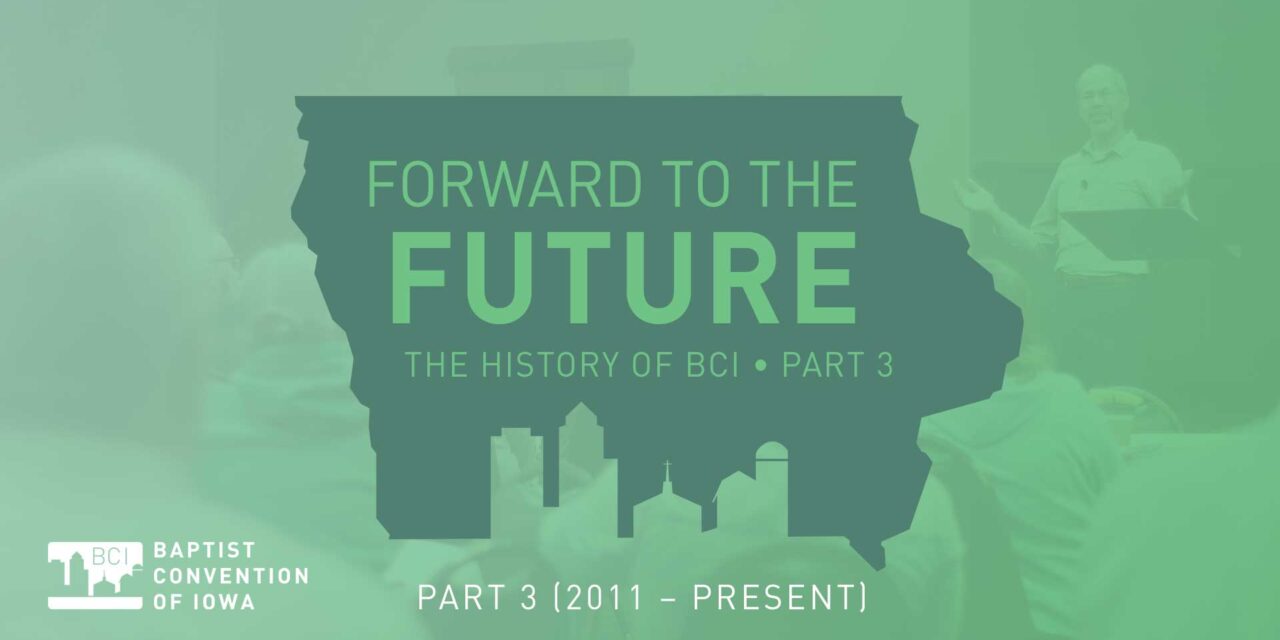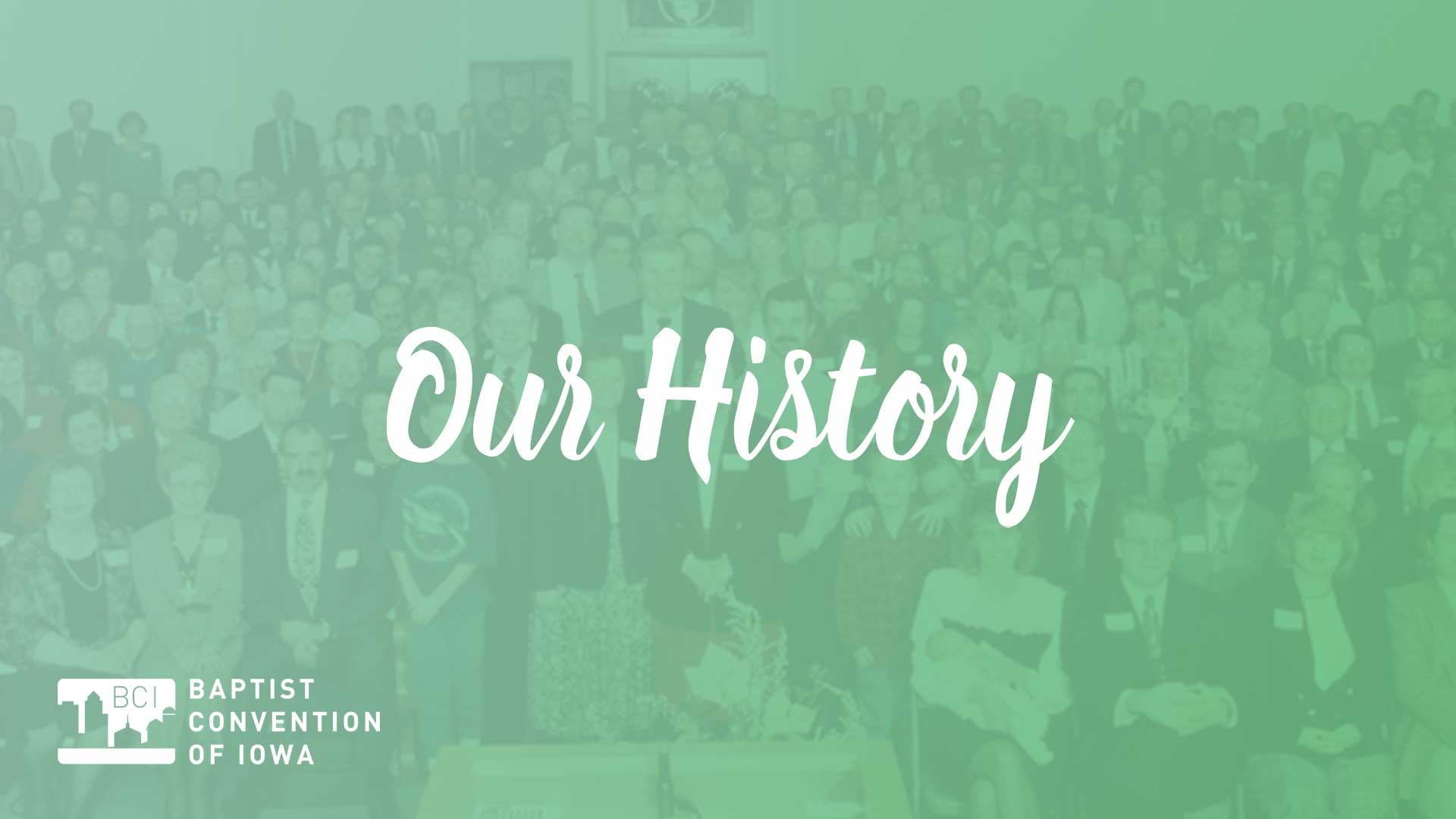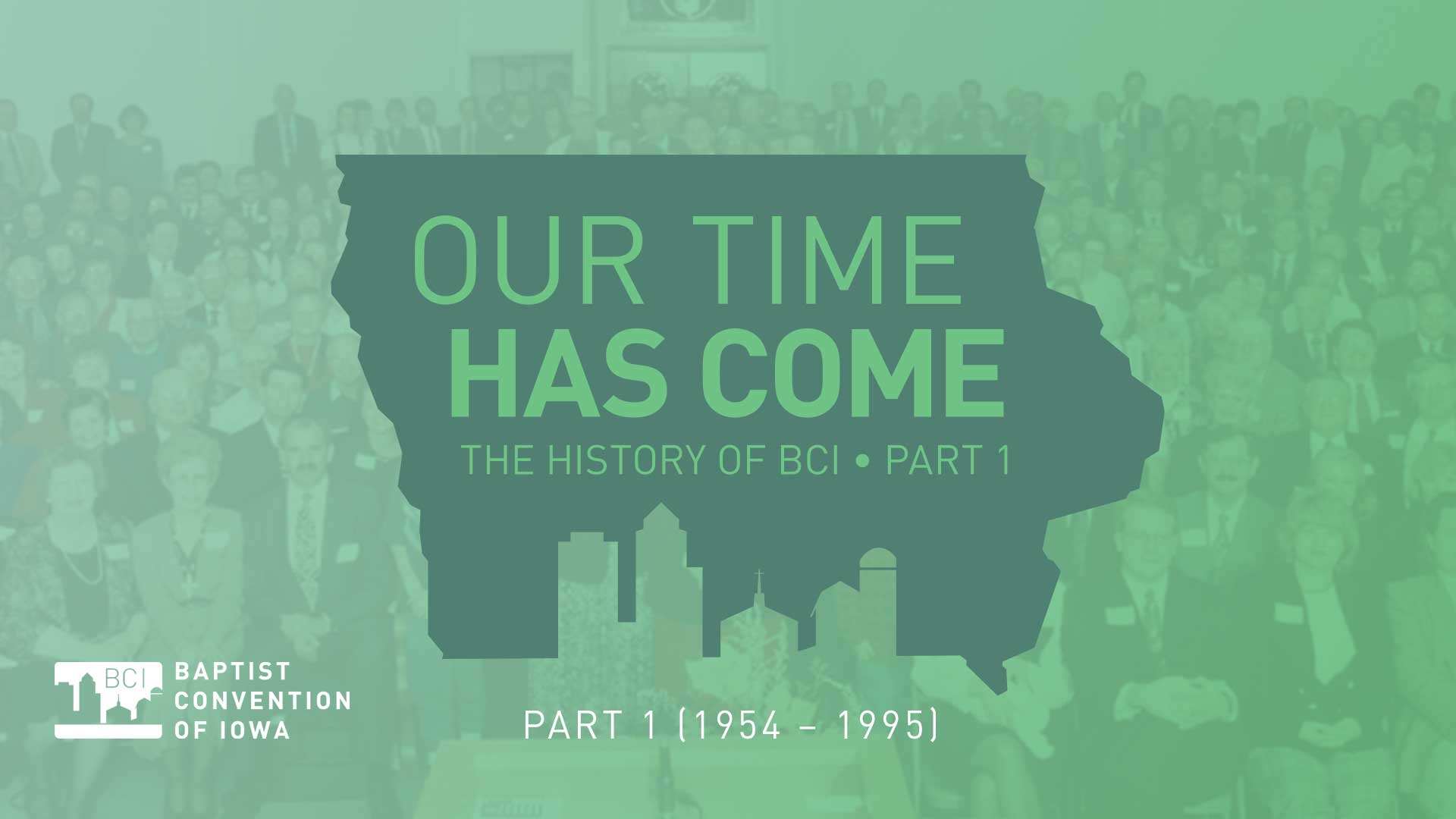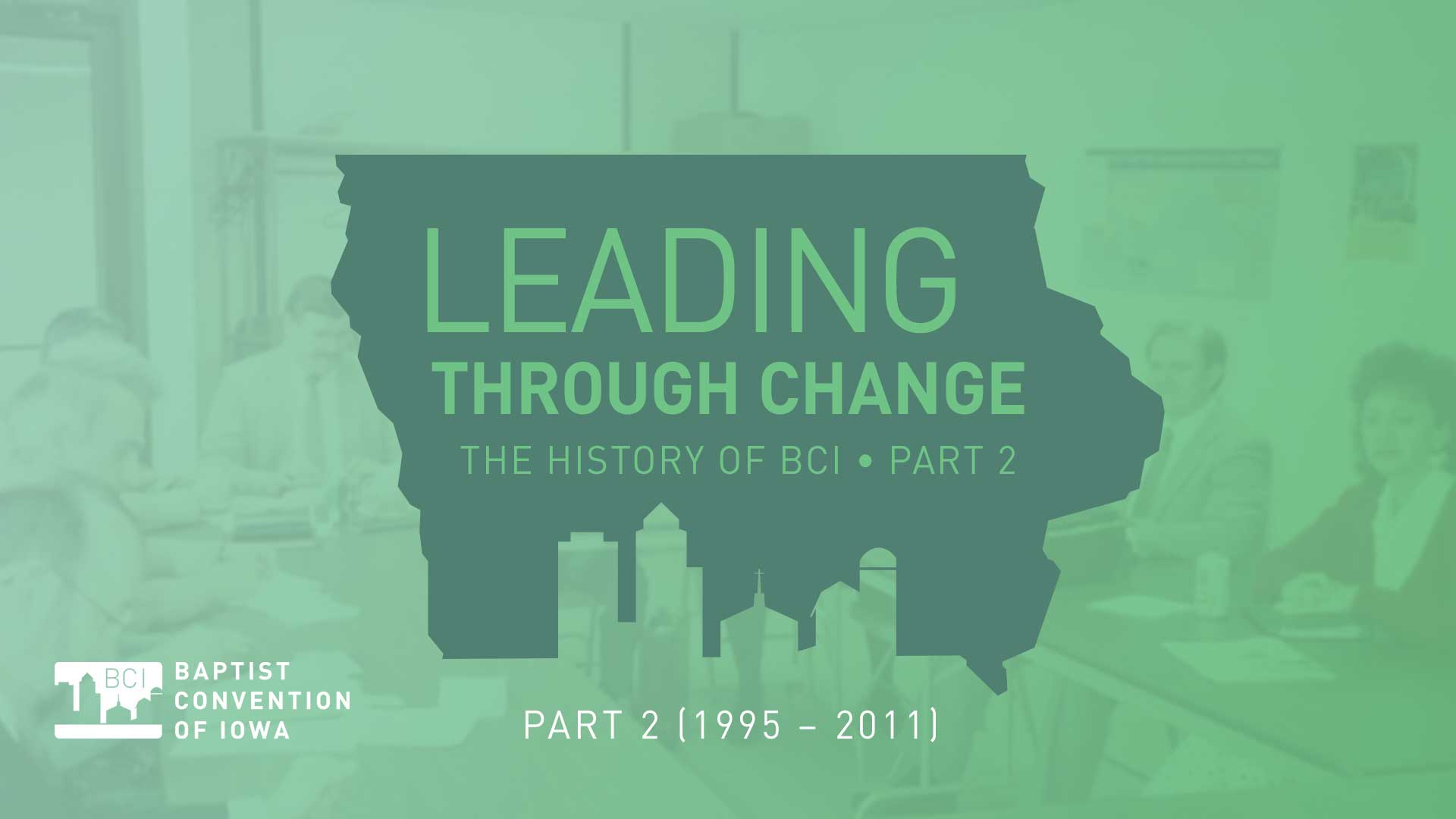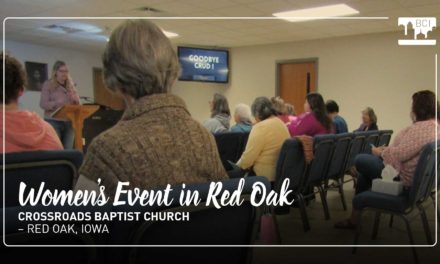THIS IS PART 3 OF A 3-PART SERIES OF ARTICLES ON THE HISTORY OF THE BAPTIST CONVENTION OF IOWA.
Change is a part of life. However, the pace at which things change continues to increase. The last decade has been a time of radical change in the Baptist Convention of Iowa (BCI). Much of the change we have experienced has been positive. At the same time, not all the changes have been easy. There have been many significant transitions in the convention in the last decade.
In 2020, the Baptist Convention of Iowa (BCI) celebrated 25 years of ministry as a convention in Iowa. However, that ministry was built on many more years of history that goes back well before the founding of BCI.
“Much of the change we have experienced has been positive,” said Ed Gregory, BCI Pastor Church Support Staff for Eastern Iowa. “The growth in BCI has increased in recent years and we’ve seen God doing new things across our state. This is a new day for our partnership of churches.” At the same time, not all the changes have been easy. There have been many difficult transitions in the convention in the last decade.
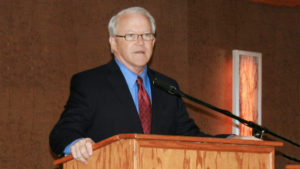 Times of Radical Change
Times of Radical Change
Some of the most significant changes were prompted by a major reorganization effort in the mission emphasis of the North American Mission Board (NAMB). Rather than funding missionaries serving as state convention staff, NAMB was reorganized to put most of their support toward church plants and church planters. One of the areas most impacted by this reorganization were the various local Baptist Associations. At one time, there were up to eight “Associational Missionaries,” or “Directors of Mission” serving the Associations and as extended staff at BCI. Suddenly, each association had to decide what they intended to do with their Associational Missionary position. Any Associational Missionary who remained under NAMB appointment needed to transition into a full-time church planting strategist. Along with this organizational restructuring, the funding structure for the Associational Missionaries changed. For most associations it was primarily a consideration of whether they would be able to financially support the role on their own moving forward. Without a dedicated leader, a number of associations decided to dissolve, some decided to continue without any staff leader, and 2 or 3 decided to continue supporting their Associational Missionary.
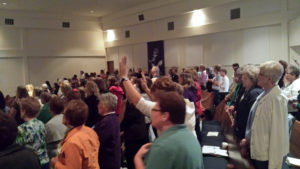 Over the years, the churches had been blessed by and had grown to depend upon lots of interaction at both the association and state level. Without associational leaders in place, the churches soon began to feel more scattered than they had been in past years. For the convention, there was a huge need to figure out how to best support the churches with fewer personnel.
Over the years, the churches had been blessed by and had grown to depend upon lots of interaction at both the association and state level. Without associational leaders in place, the churches soon began to feel more scattered than they had been in past years. For the convention, there was a huge need to figure out how to best support the churches with fewer personnel.
“Most didn’t really want that change but, looking back, we needed it,” said Mike Carlson, pastor at New Bridge Church in Winterset. “As an old pastor myself, I can feel the pain of other pastors. In the past, we all felt like we were all in the same boat. We felt like we were the same. But now all our churches are different. Some are traditional. Some are contemporary. We’ve seen the most radical change in the convention in the last 10 years. But that’s also what we’ve seen in our entire nation. If we are going to reach the people of Iowa, our methodology must change, even while our gospel message never changes.”
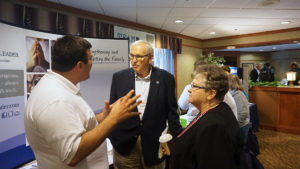 Interim Period
Interim Period
After the 2nd full-time Executive Director Jimmy Barrentine resigned from the role, there was an interim season. “We needed a totally different approach to associations,” said Pastor Carlson. “One approach that was attempted was to generate interaction between pastors based on affinity groups. There was a group for ‘large town churches’ and ‘small town churches,’ and others. This shuffling around was disruptive for many associations and some didn’t survive the transition.”
“When I returned to serve in Iowa, I recognized that there were many challenges that we were facing as a convention,” said Gregory. “It was an environment where many changes had taken place and yet more changes were needed. The convention had gone through an extended period of reevaluation in this interim period, and we had developed a new strategy and a new plan.”
The challenge for the next Executive Director would be to put the pieces back together. The first task would be to determine which pieces would be part of the future and which would not, and then to discover new pieces to fill the gaps. “When Tim Lubinus arrived at BCI, it was like opening the garage to see all the parts of a disassembled car,” said Gregory.
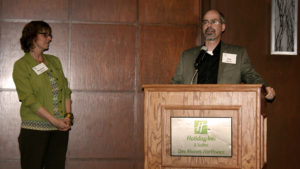 Putting the Pieces Together – Tim Lubinus
Putting the Pieces Together – Tim Lubinus
In March of 2014, Dr. Tim Lubinus was hired as the third full-time Executive Director/Treasurer of BCI. One distinctive characteristic of Dr. Lubinus is that he was a native Iowan. Tim grew up in small town Iowa and went to college at Iowa State in Ames where he was a member at Grand Avenue Baptist Church. After college, he and his wife Darlene served overseas with the International Mission Board (IMB) in Korea and Turkey for many years. Prior to his role at BCI, Lubinus was the Director of Regional and Global Ministry at Cornerstone Church in Ames.
“Each of the three directors has been very different and they were here at the right time,” said Pastor Carlson. “Dr. Jones and Jimmy Barrentine were both from the south, although they grew to know and love Iowa. Tim being an Iowa native was a plus. Additionally, Tim brought a new paradigm for convention life. A lot of positive things have come out of it. Cornerstone, where Tim came from, and all the church plants that have come out of the Salt Network have been a great blessing. But there was a lot of change, and for many pastors who had been part of things for a long time, it was beyond their change tolerance. I believe our convention and our churches need to change because Iowa has changed dramatically in the last few decades. Overall, we have more churches, more attendees, and we are more mission-minded.”
“God has blessed us with the leader that was equipped to meet the needs of the convention on that day,” said Gregory. “In this current season, we are expanding our horizons in new and unprecedented ways, and I think the future is bright if we embrace it.”
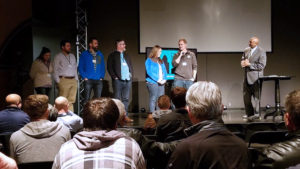 Need To Simplify
Need To Simplify
There were many strengths in the convention but further change was needed. The convention needed to simplify and focus on the most essential aspects of mission and ministry. Streamlining the programs and processes and simplifying staff, budget, and office facilities were difficult but necessary changes. “Internally, there was a reevaluation of what was truly effective,” said Gregory. “The other factor was the external forces of what was happening at NAMB that affected the funding structures.” Moving toward “leaner” form of ministry was also part of a natural progression. The nature of the work changed when digital technology allowed staff to communicate effectively on the field. The number of people and man hours needed for administration dropped. Even with fewer staff they were able to cover a lot more ground through the use of technology. As the value of working remotely grew, the office building became much less necessary to the work. Closing the convention office in August of 2016 was a major change but a natural development with a unanimous vote from the BCI Executive Board.
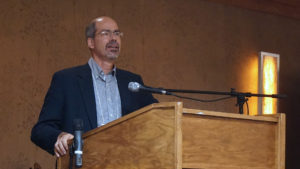 Focus on Doing Fewer Things Better
Focus on Doing Fewer Things Better
Although it is often difficult, simplifying to focus on the main mission is generally a healthy strategy. “One tendency I’ve experienced in Southern Baptist life is to keep adding programs on top of programs,” said Gregory. “It becomes hard to do any of them well. We need to focus on those core things that grow out of our purpose, our calling, and to make efforts to strengthen the things that carry us into the future. Change is always a challenge. Period. In the process of doing fewer things better, there is natural fallout. Inevitably there will be those who have sincerely invested themselves in things that are not producing the most fruit. This is always true with change. We have to take a step back and ask what will produce the greatest fruit. Pruning is a natural process to keep an organism healthy.”
One of the most prominent difficulties from the changes that have occurred is how remote churches fit in the new paradigm. “Rebuilding a new sense of trust and understanding has been really difficult,” said Gregory. “In the early days there wasn’t a ‘large church/small church’ mentality. From a convention level we need to be careful that we are not fostering that. But at the church level, we need to realize that we are all in this together. We can do more if we focus on reaching Iowa together than if we focus on our separate things. This builds that sense of fellowship and unity. In our culture, we’ve seen individualism and the importance of self rise to the top. This attitude can lead us to neglect the value of every individual, even in the church and among the churches. It’s important that the world sees us exhibit the supernatural unity found only in Christ.“
Supporting Pastors & Churches
After the staff and association restructuring, Lubinus immediately recognized the need to fill the role of providing support to the pastors and churches. The Pastor and Church Support Team was tasked with ensuring every church, near and far, has someone who is reaching out to them. Pastor and Church Support involves both personal contact as well as providing resources and tools to meet the specific needs of the churches. Whatever a pastor or church is going through, we want them to know someone they can go to who can connect them with all the resources BCI has to offer. “We need to make sure that we’re taking care of the pastors and churches that were planted long ago, some of them as many as 50 to nearly 70 years ago.” said Gregory.
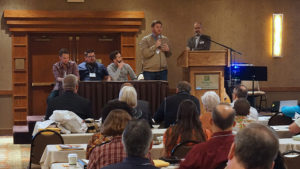 An Emphasis on Church Planting
An Emphasis on Church Planting
In recent years, we have seen a lot of new work in church planting in BCI. The movement toward church planting has really come alive and we’ve seen a renewed sense of focus. “I think there are three primary reasons for this resurgence of church planting in BCI,” said Gregory. “First, all our thriving churches have captured the vision for church planting and value it, even if they don’t know how to do it yet themselves. Second, church planting networks developed by the churches, such as the Salt Network and the 435 Network, have provided major momentum that has resulted in planting many new churches. Third, we’ve been blessed to have a NAMB Church Planting Catalyst that works with and for BCI. Chase Abner is a huge asset for BCI. Through this partnership with NAMB, Iowa can be a base for church planting with access to the best that NAMB has to offer in terms of assessing, training, and support.”
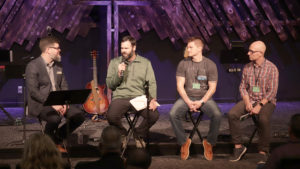 Tim Lubinus also arrived at BCI with passion and experience for church planting due to his involvement with initiating church planting efforts at Cornerstone Church in Ames. This new emphasis for the state convention coincided with the refocus that occurred at NAMB which, over time, has resulted in strong relationships with the SBC national entities.
Tim Lubinus also arrived at BCI with passion and experience for church planting due to his involvement with initiating church planting efforts at Cornerstone Church in Ames. This new emphasis for the state convention coincided with the refocus that occurred at NAMB which, over time, has resulted in strong relationships with the SBC national entities.
Pursuing Cooperative Partnerships
God has blessed BCI with leaders that have been deeply connected to Southern Baptist life and have endeavored to stay invested with what is new in the convention at large. “One strength that Lubinus brought to his role is thinking beyond our state of Iowa,” said Pastor Carlson. “We are thinking more broadly about our mission and our calling.”
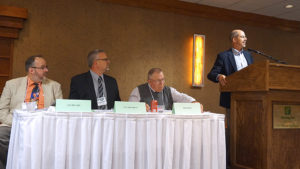 At a time when some conventions have struggled with their relationships with the national entities, Iowa has embraced these changes and adapted to the new realities. Both Dr. Jones and Jimmy Barrentine had deep ties with conventions in multiple states and our national convention partnerships have flourished under Lubinus’ leadership. BCI has embraced the value of effective partnerships, especially with NAMB, and President Kevin Ezell, because of their church planting emphasis. These partnerships are viewed as a two-way street and BCI has cultivated a positive relationship in a fresh new way.
At a time when some conventions have struggled with their relationships with the national entities, Iowa has embraced these changes and adapted to the new realities. Both Dr. Jones and Jimmy Barrentine had deep ties with conventions in multiple states and our national convention partnerships have flourished under Lubinus’ leadership. BCI has embraced the value of effective partnerships, especially with NAMB, and President Kevin Ezell, because of their church planting emphasis. These partnerships are viewed as a two-way street and BCI has cultivated a positive relationship in a fresh new way.
Another aspect of the strength of our partnership with the SBC is our innovative approach to Cooperative Program contributions. Of all funds that are given by BCI churches, we currently pass on 60% to the national SBC Cooperative Program. There is currently a proposal to increase CP contribution to 75% in 2022. The SBC national leaders have seen our commitment to give all that we can through the Cooperative Program to support the missions and education ministries in the SBC.
“We are a small convention, relatively speaking,” said Gregory. “Our whole convention is smaller than some associations in other states. But the willingness of Iowa Baptists, the churches, and the BCI Executive Board to give 50%, 60%, and even more to the Cooperative Program speaks volumes to SBC leaders. It’s also an encouragement and a challenge to other conventions and churches. We enjoy a lot of respect because of our attitude and our love for the work of partnering. In spite of our relatively small size, we have a meaningful contribution to make and can even be a catalyst for change.”
Responding to the Challenges of Today
In restructuring BCI, for some there was a sense of losing an identity that had become comfortable. With no building, where should a church leader go to connect with the convention? With no association, how can we participate in a personal and relational way? Beyond pooling funds, what can we “do” together to reach our individual communities? What is the “Iowa” part of the identity of our convention? Some issues are with perception, but these perceptions reflect real challenges.
“Given the challenges before us, we need to respond by trusting God’s sovereignty in every development, doubling down on unity, and recapturing a sense of togetherness,” said Gregory. “We want to embrace what God has done in 25 years of ministry, but also to embrace what needs to be done to reach the next generation in the next 25 years. Let’s run with the idea that we can do more together than we can individually. Let’s regroup around the Cooperative Program to see the Kingdom advance and keep our eyes on the Lord.”
Forward to the Future
We have many reason to be excited about what God might do in our partnership of churches in the next 25 years. We pray that we will continue to see the birth of new churches, growth in healthy churches, and revitalization in declining churches.
“At the 2019 BCI Annual Meeting, I said in my address that there were two words that typified our convention: gratitude and optimism,” said Gregory. “It has truly been a joy to be part of what God has done through all these years.”
As we consider the 25th Anniversary of the Baptist Convention of Iowa, we don’t want to only reflect on the past with gratitude, but to look forward to the future with hope and optimism about what God will do in the future. To God be the glory!

